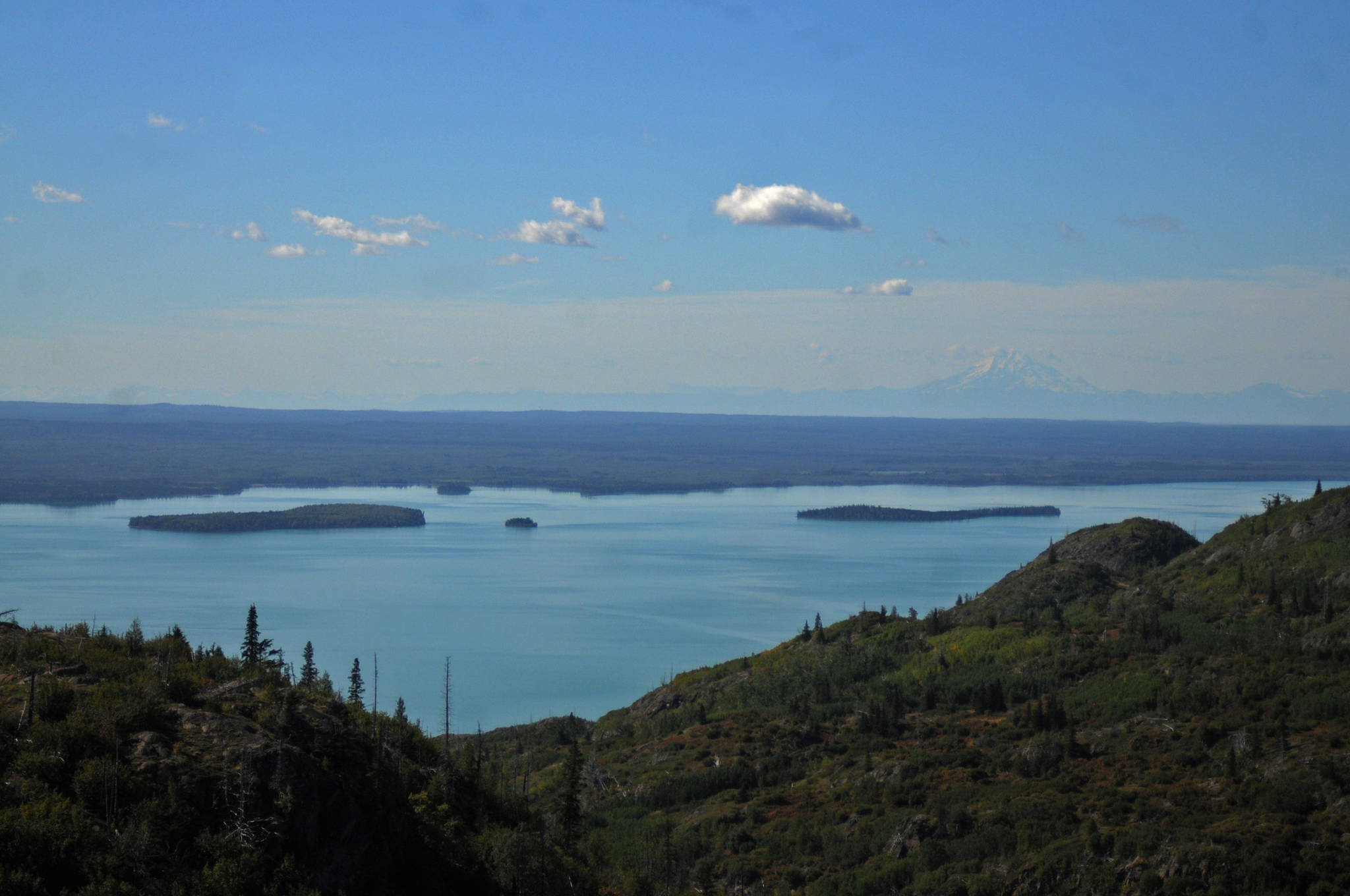The black bear that damaged a tent Saturday morning at the Lower Ohmer Lake campground didn’t get any food from the site and hasn’t hung around there since, said Kenai National Wildlife Refuge Deputy Manager Steve Miller.
On Saturday, Miller said, a bicyclist camping at Lower Ohmer Lake was awakened by a bear stepping on her tent.
“She made noise, the bear ran off,” Miller said. “The neighbors in the adjacent campsite came out. Then they all went back to bed, and it seems like the bear returned later. The woman didn’t report anything to the refuge, though we’ve contacted her since then. She doesn’t report any injuries — she said she had a slight scrape on the shoulder.”
After getting a report from a neighboring camper the next morning, the Refuge closed the Lower Ohmer and the nearby Upper Skilak and Engineer Lake campgrounds to tent campers, moving those there to Hidden Lake campground and waiving the fee for that site. The three campgrounds remain closed to tent camping, though open to day-use and hard-sided recreational vehicles.
“We’ll make a decision over the next few days here about when it should be safe to go back in there,” Miller said. “We’ve had people enjoying those campgrounds and haven’t had anything approaching that incident since then. Bears since then have walked through the campground, but shown no interest in any of the campsites.”
Four days before the incident, another black bear with three cubs had torn into an unattended tent in Anchorage’s Centennial Campground, puncturing a two-liter bottle of soda that had been inside — the sixth recorded incident of those four bears going after human food, according to the Anchorage Daily News. The next day, biologists from the Alaska Department of Fish and Game shot the bear and cubs. The incident at Lower Ohmer lake is different — for one thing, the bicyclist had no food in her tent.
“We don’t know exactly what led to it, because in this case the lady had done everything right,” Miller said. “She was traveling by bicycle (with) her food and other smelly items, (so) she’d asked the adjacent campsite if she could put them in their vehicle, and stored everything there that night. So the attractant wasn’t anything food-related. Who knows what the bear was thinking at the time?”
The refuge gives citations to those leaving food unattended and so far has had to kill one bear this summer, at Upper Skilak campground. That bear’s behavior was very different from the bear that visited Lower Ohmer on Saturday, which left without taking food and hasn’t been seen again by the refuge’s patrols there. The bear killed at Upper Skilak campground “had gotten food, and was not leaving that campground,” Miller said.
“It showed no fear of humans,” Miller said. “The officer arrived and he couldn’t even scare off the bear. Then the bear approached again, and lethal action was taken at that point.”
Bears that come to see campgrounds as easy food sources are the ones that become problems.
“You see the signs around the campgrounds: ‘A fed bear is a dead bear.’ That’s what we don’t want to happen,” Miller said. “… As the national wildlife refuge, we’re here for both people and bears, people and wildlife. In the past it’s worked out well. This year we’re hoping to get through the busy part of the season and turn it back over to the wildlife again.”
Reach Ben Boettger at bboettger@peninsulaclarion.com.

